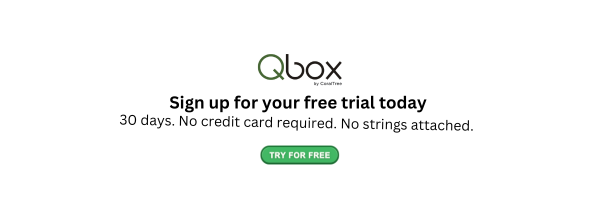Step-by-Step Guide to Becoming a Certified Public Accountant

Contents
If you’re considering a career in accounting, becoming a Certified Public Accountant (CPA) can open the doors to exciting and rewarding job opportunities. CPAs are highly respected professionals with the skills to help businesses, organizations, and individuals navigate complex financial landscapes. This guide provides a comprehensive overview of how to become a Certified Public Accountant, covering essential requirements, benefits, costs, and the resources available to you along the way. Let’s dive into the journey of becoming a certified public accountant.
What Is a Certified Public Accountant (CPA)?
A Certified Public Accountant is a trusted financial advisor who helps individuals, businesses, and organizations plan and reach their financial goals. CPAs handle various tasks, including tax preparation, auditing, financial analysis, and consulting. The CPA credential is highly regarded in the accounting profession, as it indicates that the individual has met strict educational and professional requirements, making them a valuable asset in the financial sector.
Why Choose to Become a Certified Public Accountant?
Becoming a certified public accountant can be a fulfilling career choice for several reasons. CPAs are known for having job security, competitive salaries, and a wide range of career paths. Here are some key benefits of becoming a certified public accountant:
- High Demand: CPAs are in high demand across various industries, including finance, government, and corporate sectors. With a CPA license, job opportunities become more accessible, even in economic downturns.
- Competitive Salary: CPAs typically earn more than non-certified accountants, as the certification increases your marketability and credibility in the field.
- Career Flexibility: CPAs can work in different accounting areas, such as tax, auditing, consulting, and financial planning. This diversity enables CPAs to choose a path that aligns with their strengths and interests.
- Professional Recognition: Having a CPA license sets you apart in the job market, showing that you possess advanced knowledge and skills.
- Room for Advancement: With a CPA license, you’re more likely to qualify for higher-level positions, which can lead to more responsibility and better compensation.
By understanding the benefits of becoming a certified public accountant, you can better evaluate if this career aligns with your professional goals.
Step-by-Step Guide: How to Become a Certified Public Accountant
The path to becoming a certified public accountant involves meeting education, examination, experience, and ethics requirements. Here’s a step-by-step breakdown of what it takes.
1. Understand the Educational Requirements
The first step is meeting the educational requirements to become a certified public accountant, which vary by state. Generally, you’ll need:
- Bachelor’s Degree: Almost all states require at least a bachelor’s degree in accounting, finance, or a related field.
- 150 Credit Hours: Most states mandate that candidates complete 150 semester credit hours, which is about 30 hours more than a typical bachelor’s degree. Many aspiring CPAs pursue a master’s degree or additional courses to meet this requirement.
2. Gain Relevant Work Experience
Before taking the CPA exam, candidates must accumulate relevant work experience. The requirement varies by state, but generally:
- 1-2 Years of Experience: Most states require 1-2 years of accounting work under the supervision of a licensed CPA.
- Work in Accounting, Auditing, or Financial Reporting: Experience can usually be gained in public accounting firms, corporations, government agencies, or non-profit organizations.
3. Pass the CPA Exam
The CPA Exam is a crucial step in becoming a certified public accountant and is known for its rigor. The exam is divided into four sections:
- Auditing and Attestation (AUD)
- Business Environment and Concepts (BEC)
- Financial Accounting and Reporting (FAR)
- Regulation (REG)
Each section tests your understanding of key accounting concepts and is graded on a scale of 0 to 99, with a passing score of 75. Candidates have 18 months to pass all four sections after passing their first section.
4. Meet State-Specific Licensing Requirements
Once you’ve passed the CPA exam, you must fulfill state-specific requirements to obtain your CPA license. Requirements to become a certified public accountant may include:
- Background Check: Many states require a background check to ensure the integrity of their licensed CPAs.
- Ethics Exam: Some states require candidates to pass an ethics exam in addition to the CPA exam.
Also Read : The Role of CPAs in Helping Business Clients Succeed
How Much Does It Cost to Become a Certified Public Accountant?
When planning to pursue a CPA license, it’s essential to consider the cost to become a certified public accountant. Here’s a breakdown:
- CPA Exam Fees: Each exam section costs approximately $200-$250, totaling around $800-$1,000.
- Application Fees: Depending on the state, application fees range from $50 to $200.
- Study Materials: Quality CPA study materials and courses can cost between $1,000 and $3,000.
- CPA License Fees: Licensing fees can vary, often between $50 and $500, depending on the state.
Overall, expect to spend between $2,000 and $5,000 to cover all costs associated with becoming a CPA.
Additional Skills and Software Knowledge for CPAs
While the CPA credential focuses on accounting expertise, additional skills can enhance a CPA’s marketability:
- Technical Proficiency: CPAs should be proficient in accounting software, such as QuickBooks, Sage, and other tools commonly used in the field.
- Data Analysis: With the growing emphasis on data, CPAs who understand data analysis and reporting can offer deeper insights to their clients.
- Interpersonal Skills: CPAs interact with clients, stakeholders, and colleagues, making communication and interpersonal skills valuable.
How Qbox Can Support CPAs
Once you become a certified public accountant, managing client files securely and efficiently becomes a top priority. Qbox, a file-sharing solution specifically designed for accountants, provides CPAs with tools to simplify document management and enhance client interactions.
With Qbox, CPAs can:
- Access Client Files Remotely: Qbox enables secure file-sharing, allowing CPAs to access client documents from anywhere, improving flexibility in client management.
- Collaborate in Real-Time: Qbox’s syncing capabilities ensure that any updates made to client files are reflected in real-time, reducing the risk of versioning issues.
- Enhance Security: Qbox prioritizes file security, offering data protection to safeguard sensitive client information.
Tips for Aspiring CPAs
Embarking on the journey to become a certified public accountant can be challenging, but here are some tips to help you succeed:
- Stay Disciplined with Study Plans: The CPA exam is demanding, so maintaining a consistent study schedule is essential.
- Join Study Groups or CPA Review Courses: Collaborating with others can make studying more enjoyable and less isolating.
- Gain Practical Experience Early: Work or internships in accounting will reinforce what you learn academically.
- Utilize Professional Resources: Local certified public accountants or CPA associations often host events, webinars, and other resources for aspiring CPAs.
Final Thoughts
While the road to becoming a CPA requires dedication, the rewards are worth it. With a CPA license, you gain professional credibility, access to higher salaries, and the opportunity to impact clients’ financial futures. From education and experience to exams and licensing, the journey is structured to ensure only qualified individuals hold this respected title.
By taking these steps and leveraging tools like Qbox to manage your files securely, you’ll be well-equipped to enjoy a long, successful career in accounting. If you’re committed to this path, then you’re already on the right track to become a certified public accountant and make a meaningful impact in the field of accounting.

